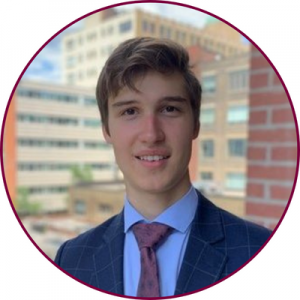McMaster student-led startup working to solve emergency room triage delays

EmergConnect is a digital platform aimed at solving the problem of delays in emergency room triage (Shutterstock)
A McMaster student-led startup is working on solving the problem of delays in emergency room triage, starting with hospitals in Ontario.
EmergConnect, founded by Biomedical Discovery and Commercialization master’s student Ron Galaev, is a centralized digital platform that allows patients to register for emergency care and start a self-assessment while still at home. It then customizes their wait time predictions and redirects them to the best care environment — the closest hospital, urgent care centre or facility suited to their need — based on that assessment.
Better answers for patients and health-care workers
“There’s nothing worse than the unknown,” says Galaev, who founded EmergConnect during his undergraduate degree in BDC and Health Sciences. “We let you know how long you have to wait and when you will be seen, and that improves the patient experience.”
EmergConnect also vastly improves efficiency for health care workers, freeing up triage and intake nurses from the time-consuming task of inputting data, Galaev notes.
“Nurses work long hours. And lot of their time is spent typing information into a computer, entering data points,” he notes. “This is information patients provide them anyway, so why not allow patients to provide it directly to the system? You’d improve system efficiency and throughput and let nurses spend more time with patients.”

This is especially relevant at a time of staffing shortages, when nurses are overwhelmed.
“We can’t pull more nurses out of the sky, so a digital system at scale can help nurses by leveraging some of the information of power that patients have.”
Ultimately, Galaev’s vision is to take all the information and direct patients to care that best suits their needs.
“A lot of patients can be seen virtually, or at a walk-in clinic, or they might not need a doctor, or they might not need an ER,” he says.
“EmergConnect can show you the relevant care options, then give the care provider your information before you get there so they know you’re coming. Your wait is shorter, it costs OHIP less than an ER and you get the care you need.”
Climbing a mountain in flipflops
EmergConnect has come a long way since Galaev came up with the idea of having patients go through triage before they leave the house as part of some course work for his undergraduate degree.
The BDC program also gave him the fundamental skills that shaped this journey, he says. “It helped me diversify my knowledge, learn about pharmaceuticals and pharmaceutical regulations,” he says. “It also got me interested in lab work, which I am grateful for.”
In 2021, EmergConnect won the LiONS Lair pitch competition at the Innovation Factory. Galaev’s also a client at The Forge, the McMaster-funded business incubator for local startups.
All told, EmergConnect has secured $750,000 in funding in the first round of fundraising — mostly from private investors — as well as agreements with hospitals for some pilot projects.
The company is currently awaiting provincial approval for a collaboration with one of Ontario’s busiest emergency department networks, something Galaev hopes to see launched in the next few months.
And while he makes it sound easy, Galaev has navigated “a million roadblocks in health care” along the way. Privacy assessments, risk assessments and technical integration alone cost hundreds of thousands of dollars, he notes. “As a private company, that’s very challenging.”
And raising money isn’t easy, especially for an undergraduate who looks very young, he says drily. It was a slow process, with many a “no” for every “yes,” says the entrepreneur.
“It’s all a process of learning as you go and you catch tidbits along the way,” he says. “You learn to deal with disappointment, rejection, setbacks, challenges, timeline changes — it was like climbing a mountain in flipflops.”
Any work involving people’s data from individuals’ health records requires navigating a tremendous amount of regulations, but Galaev and his team stuck with it.
And as the project’s scope has grown, so to has the EmergConnect team, with executive leadership and technical roles added along the way.
“The most important thing for our success is having a great team,” says Galaev. “I am hugely fortunate in my team — I will throw a ridiculous problem at them and they will come up with a creative solution and create it.”
Any advice for other aspiring entrepreneurs? “Go for it. Don’t be afraid of failing,” Galaev says. “You will fail, all the time. I fail every day. It’s important for that to happen. It’ll be hard but go for it anyway. You’ll learn from it.”


